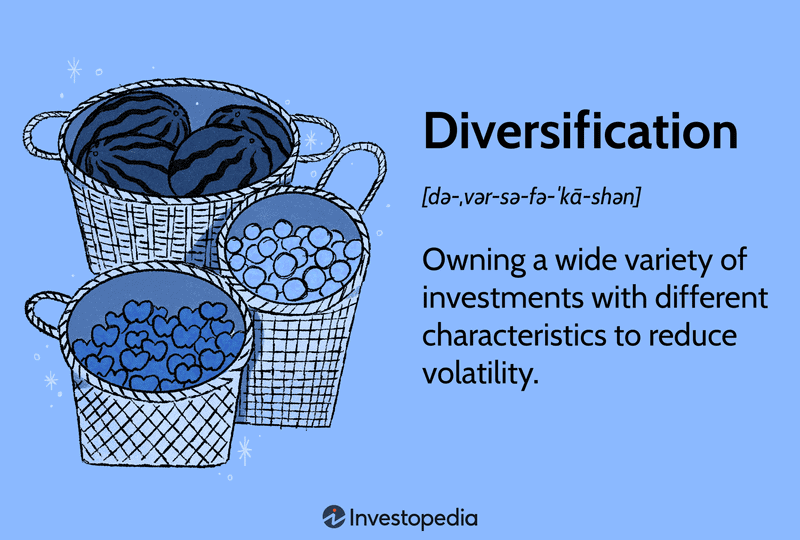Retirement is a phase of life that many look forward to, a time when you can finally relax and enjoy the fruits of your labor. However, ensuring that your retirement savings last throughout your golden years requires careful planning and vigilant financial management. There are several pitfalls that can lead to the rapid depletion of your retirement funds, leaving you financially vulnerable when you should be most secure.
By being aware of these potential mistakes and taking proactive measures to avoid them, you can protect your nest egg and enjoy a financially stable retirement. In this blog post, we explore 15 costly mistakes that can make your retirement savings disappear, offering insights and practical tips to help safeguard your financial future.
1. Underestimating Healthcare Costs

Healthcare expenses in retirement can be significantly higher than anticipated. Many retirees fail to adequately estimate these costs, leading to financial strain. It’s crucial to plan for unexpected medical expenses and consider long-term care insurance. Ignoring these costs can result in rapidly depleting your savings. In addition, regular check-ups and preventive care can minimize unexpected health issues. Having a health savings account (HSA) can also provide a financial cushion. By understanding potential healthcare expenses, you can better prepare your retirement budget and protect your savings.
2. Not Diversifying Investments

Relying too heavily on a single type of investment can be risky. Diversification helps mitigate potential losses by spreading risk across various asset classes. Retirees often make the mistake of not diversifying their portfolios, leading to vulnerability during market downturns. Investing in a mix of stocks, bonds, and real estate, among others, can provide a balanced approach. Additionally, reviewing and adjusting investments regularly ensures alignment with financial goals. Consulting a financial advisor can offer personalized strategies to optimize your retirement portfolio for stability and growth.
3. Claiming Social Security Too Early

Claiming Social Security benefits at the earliest opportunity can significantly reduce your lifetime benefits. It’s often more beneficial to delay claiming until full retirement age or later, which increases your monthly payments. Many retirees overlook this strategy, resulting in less income during retirement. Understanding your Social Security benefits and planning accordingly can maximize your financial resources. Consider how claiming age affects your overall retirement plan. By delaying benefits, you increase your financial security and afford a more comfortable retirement lifestyle.
4. Ignoring Inflation Impact

Inflation erodes purchasing power over time, and many retirees fail to account for this in their planning. This oversight can lead to a shortfall in retirement funds. It’s essential to include inflation considerations in your financial strategy. Adjusting your investment approach to incorporate assets that hedge against inflation, such as Treasury Inflation-Protected Securities (TIPS), can help. Additionally, periodically reviewing your budget to reflect changing costs ensures sustainability. By staying informed and adapting to inflation, you can better preserve your retirement savings.
5. Neglecting to Update Estate Plans

Failing to regularly update estate plans can lead to unanticipated tax burdens and distribution issues. As life circumstances change, so should your estate planning documents. Many retirees neglect this aspect, risking potential financial complications. Reviewing wills, trusts, and beneficiary designations ensures alignment with current wishes. Consulting an estate planning attorney can provide clarity and guidance. Keeping your estate plans current helps protect your assets and ensures a smooth transition for your heirs, safeguarding your retirement legacy.
6. Overspending in Early Retirement

It’s common for retirees to splurge in the early years of retirement, enjoying newfound freedom. However, overspending can quickly deplete savings. Setting a realistic budget and sticking to it is essential to ensure longevity of funds. Many underestimate the long-term impact of early extravagance. Consider phasing expenditures and prioritizing needs over wants. Implementing a disciplined financial plan helps manage resources effectively. By practicing mindful spending, you can enjoy retirement without jeopardizing your financial security.
7. Withdrawing from Retirement Accounts Incorrectly

Improper withdrawals from retirement accounts can result in unnecessary taxes and penalties. Understanding required minimum distributions (RMDs) and withdrawal strategies is crucial. Many retirees mistakenly withdraw funds without considering tax implications. Consulting with a financial advisor can provide insights into tax-efficient withdrawal plans. Knowledge of different account types and their respective rules is vital. By optimizing withdrawal strategies, you preserve more of your savings for future needs, enhancing retirement stability.
8. Not Planning for Longevity

People are living longer, and failing to plan for longevity can strain retirement resources. Many retirees underestimate how long they will live, risking outliving their savings. It’s crucial to plan for an extended lifespan by considering annuities or other income streams. Evaluating your retirement plan to ensure it accommodates a longer life is essential. Investing in health and wellness can also contribute to longevity. By preparing for a longer retirement, you enhance your financial security and quality of life.
9. Mismanaging Debt

Debt can severely impact retirement savings if not managed properly. Many retirees carry mortgage, credit card, or personal loan debt into retirement, which can erode their financial stability. Creating a plan to pay down debt before retiring is essential. If already retired, prioritize paying off high-interest debt to minimize financial strain. Consider refinancing options or consolidating debt for better management. By addressing debt proactively, you preserve more resources for retirement needs and reduce stress.
10. Underestimating Taxes

Understanding tax obligations in retirement is crucial to avoid unexpected liabilities. Many retirees underestimate how taxes can affect their income, especially with withdrawals from retirement accounts. Planning tax-efficient withdrawals and considering the tax implications of investments can mitigate surprises. Consulting with a tax advisor provides clarity on how to manage tax responsibilities. By integrating tax planning into your retirement strategy, you enhance financial predictability and protect your savings.
11. Failing to Adjust Lifestyle

Maintaining a pre-retirement lifestyle without adjusting to a fixed income can quickly deplete savings. It’s crucial to align lifestyle expectations with financial realities. Many retirees fail to downsize or reduce expenses, leading to financial challenges. Evaluating your financial situation and making necessary lifestyle adjustments enhances sustainability. Consider alternative housing options or reducing discretionary spending. By aligning your lifestyle with your retirement income, you ensure a more secure and enjoyable retirement.
12. Ignoring Spouse’s Retirement Needs

Retirement planning should consider both partners’ needs. Failing to account for a spouse’s retirement plans can lead to financial imbalance and stress. It’s important to communicate and coordinate retirement strategies to ensure mutual security. Sharing financial responsibilities and discussing future goals fosters alignment. Consider joint investments and spousal benefits to maximize resources. By planning together, you create a comprehensive and effective retirement strategy that supports both partners.
13. Relying Solely on Pensions

Relying only on a pension can be risky, as it might not cover all retirement expenses. Diversifying income sources helps cushion against shortfalls. Many assume a pension will suffice, but it often doesn’t adjust for inflation or unexpected costs. Consider additional savings, investments, or part-time work to supplement income. Evaluating your pension and exploring other income avenues strengthens financial security. By diversifying income streams, you enhance your retirement resilience and adaptability.
14. Avoiding Professional Financial Advice

Professional guidance can offer valuable insights into optimizing retirement finances. Many retirees avoid seeking advice, missing out on tailored strategies. Financial advisors can help manage investments, withdrawal plans, and tax strategies, enhancing financial health. Finding a trusted advisor who understands your goals and circumstances is essential. By leveraging professional expertise, you gain confidence in your financial decisions and maximize your retirement savings potential.
15. Neglecting Emergency Fund

An emergency fund is crucial, even in retirement. Unexpected expenses can arise, and without a safety net, savings can be quickly depleted. Many retirees neglect this aspect, leaving them vulnerable. Setting aside a portion of savings for emergencies provides security. Regularly evaluating and replenishing the fund ensures preparedness. By maintaining an emergency fund, you protect your retirement savings from unforeseen financial shocks and ensure peace of mind.

Well, hello there!
My name is Jennifer. Besides being an orthodontist, I am a mother to 3 playful boys. In this motherhood journey, I can say I will never know everything. That’s why I always strive to read a lot, and that’s why I started writing about all the smithereens I came across so that you can have everything in one place! Enjoy and stay positive; you’ve got this!

